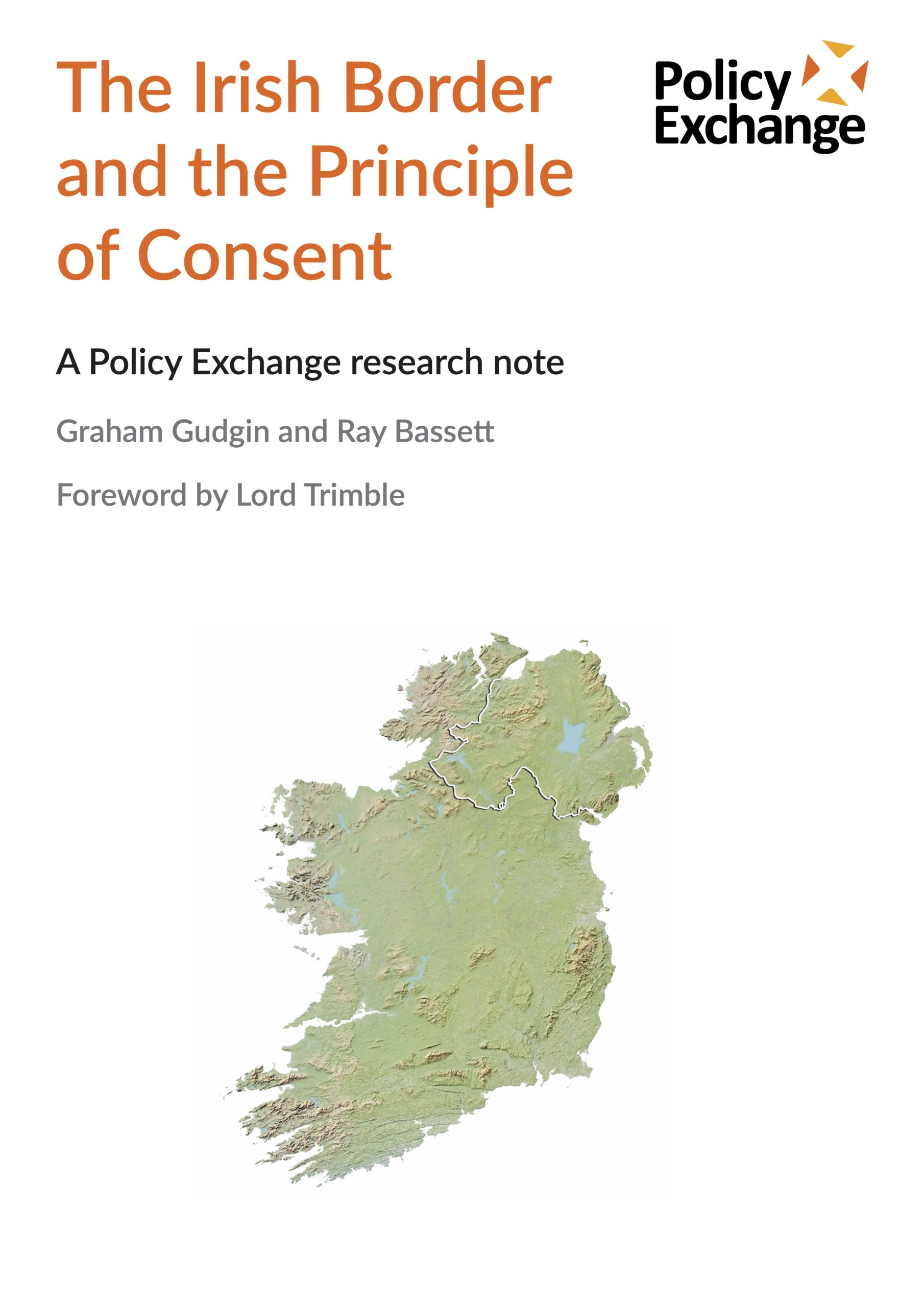
The Irish Border and the Principle of Consent
It is the EU’s Brexit position which most threatens the terms of the Good Friday Agreement. In a new research note with a Foreword by Rt Hon Lord Trimble, The Irish border and the principle of consent, Dr Graham Gudgin, Policy Exchange’s Chief Economic Adviser, and former Special Adviser to the First Minister in the NI Assembly and Dr Ray Bassett, Policy Exchange’s Senior Fellow on EU Affairs and a member of the Irish Government Talks Team during the 1998 Good Friday Agreement negotiations, argue that:
• Theresa May’s stance is more closely aligned to the original principles of the 1998 Good Friday Agreement than the Irish-EU side’s stance.
• Current Irish demands contravene the 1998 Good Friday Agreement.
• It is currently the EU position in talks that is now the greatest danger to the terms of the 1998 Good Friday Agreement, because of a fundamental misinterpretation of the principle of consent on which it rests – which holds that the future constitutional status of the people of Northern Ireland has to be decided by a majority of the people in Northern Ireland.
• The idea that a backstop might involve a few veterinary checks on ferries or at ports in Great Britain is palpably false. In the circumstances in which a backstop would operate, tariffs would need to be collected. These could be collected without border checks but the same is true for a land border.
• Future trade talks between the UK and EU should include an ‘Ireland chapter’, in which both sides genuinely try to ensure an invisible border and preserve existing cross-border cooperation.


